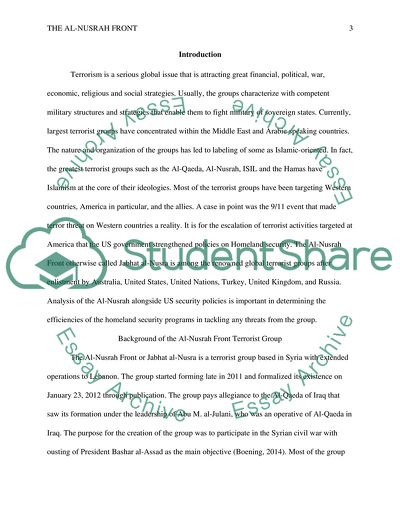Cite this document
(“Al-Nusrah Front Terrorist Group Profile Thesis Example | Topics and Well Written Essays - 3000 words”, n.d.)
Al-Nusrah Front Terrorist Group Profile Thesis Example | Topics and Well Written Essays - 3000 words. Retrieved from https://studentshare.org/religion-and-theology/1684510-al-nusrah-front-terrorist-group-profile
Al-Nusrah Front Terrorist Group Profile Thesis Example | Topics and Well Written Essays - 3000 words. Retrieved from https://studentshare.org/religion-and-theology/1684510-al-nusrah-front-terrorist-group-profile
(Al-Nusrah Front Terrorist Group Profile Thesis Example | Topics and Well Written Essays - 3000 Words)
Al-Nusrah Front Terrorist Group Profile Thesis Example | Topics and Well Written Essays - 3000 Words. https://studentshare.org/religion-and-theology/1684510-al-nusrah-front-terrorist-group-profile.
Al-Nusrah Front Terrorist Group Profile Thesis Example | Topics and Well Written Essays - 3000 Words. https://studentshare.org/religion-and-theology/1684510-al-nusrah-front-terrorist-group-profile.
“Al-Nusrah Front Terrorist Group Profile Thesis Example | Topics and Well Written Essays - 3000 Words”, n.d. https://studentshare.org/religion-and-theology/1684510-al-nusrah-front-terrorist-group-profile.


